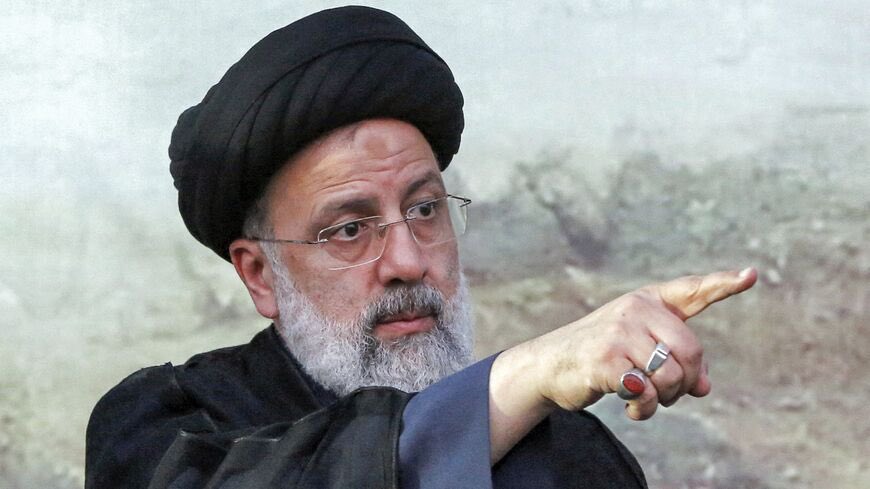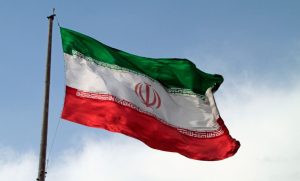
US, West drive Iran into arms of hardliner President
Ebrahim Raisi being elected as the president of Iran will throw the country back to conservatism and set the liberals back.

With the election of conservative judge Hojatoleslam Ebrahim Raisi as its new president, Iran has once again slipped back into a radical mode. For a section of the liberal, moderate populace in the country that has for years attempted to force political reforms, Raisi’s election is a setback.
Much of the ‘credit’ for the Islamic republic’s regression into a more hardline, fundamentalist rule should go to the United States and Nato countries in the European Union.
The 60-year-old Raisi, who was elected on Friday by a huge margin, is the protégé of the current supreme ruler of Iran, Ayotollah Khameini, and expected to succeed him in time. He was brought in by Khameini as the chief of the judiciary in 2019, signalling the re-emergence of hardline politics in the country.

Iran, since the 1979 revolution, has been under the strict control of the Supreme Leadership Authority of the Islamic Republic of Iran. The country’s laws are in consonance with the Islamic Sharia tenets. Ruled by the majority Shia Muslim community, Islamic guidelines dictate social norms with segregation practised among the sexes, for example. The democracy practised too is limited in nature with the nodal Guardian Council led by the Supreme Leader having overarching powers that, among other things, determine the “suitability” of candidates to contest elections.
For long, there has been a section including university students and liberal-minded sections that has sporadically mounted public movements for reforming politics and easing various social restrictions. The highpoint was between 1997-2004 under the reformist government of Mohammed Khatami.
It came to an abrupt end with the US invasion of Iran’s neighbour Iraq in 2003, which turned politics upside down in the region. In a reaction to the US action and the perceived threats to Iran following the invasion, Khatami was replaced in the 2005 elections by a hardliner Mahmoud Ahmadinejad, halting any hopes of reforms.
Ironically, while on the one hand, the reform-minded sections have tacitly received support from European nations and the US, these very countries have succeeded in neutralising any possibility of reforms by undertaking action that has served to anger and isolate Iran globally.
Take a few latest instances. After much discussion and meticulous planning, the former government of Iran under the more liberal-minded Hassan Rouhani managed to strike a nuclear deal (Joint Comprehensive Plan of Action) with the five permanent members of the United Nations Security Council besides Germany and the European Union.
The former US president Barack Obama, whose initiative led to the deal, was succeeded by an ultra-conservative and unpredictable Republican President Donald Trump who on May 8, 2018 walked out of the deal, unilaterally. The entire effort that had gone into the nuclear deal was overnight reduced to nothing. Though Trump came up with excuses, he had no real reason to scrap the deal, except perhaps to please the US allies Israel and Saudi Arabia.
The other signatories, including Germany, the United Kingdom and France that had signed the deal, instead of taking a position against Trump’s actions turned out to be a timid bunch that could only emit feeble protests. Worse, they meekly followed Trump and turned against Iran
Also read: America is back on global stage, says Biden, and Iran could be the first test
Such a move ended up antagonising the Iranian population. Tehran’s Islamic regime got the opportunity to point fingers at the outside world and tell its population how unfairly they had been treated. What such actions tend to do is stifle the latent moves for reforms as the liberal sections suddenly find an upsurge in support of the government.
As if this were not enough, Trump ordered the assassination of Iran Major General Qasem Soleimani in a brazen attack that left the entire Islamic nation shocked. This was even worse than the US walking out of the nuclear deal. Soleimani was a rising star in Iran, and his exploits in the Middle East (including in the defeat of the Islamic State) were legendary.
As commander of the Quds force, an elite division of the Islamic Revolutionary Guard Corps, Soleimani had advanced Iran’s military-foreign policy strategy that won open admiration from Khameini himself. It was widely expected that Soleimani was on track to occupy a top position in the Iranian political hierarchy.
His assassination in January last year triggered a massive outpouring of grief among common Iranians, in the process washing away any remnants of the subterranean reform movement in the country.
Also read: Killing of N-scientist part of a larger Trump-led conspiracy against Iran?
And the latest was the killing of leading nuclear scientist Mohsen Fakhrizadeh in November last year in Tehran, reportedly by Israel’s Mossad. All such moves have only ended up garnering more support for Iran’s ruling elite within the country.
With US-led sanctions in varying forms dogging the country periodically for the last several years, the continued attempts by the West to target Iran has only served to increase support for the Islamic regime within the country. It is almost like a state of war in Iran, and the population naturally pushes aside whatever differences they may have and back the government.
Pushed to a corner, it is no surprise that the electorate has chosen Ebrahim Raisi as its latest president, an individual with an unambiguous track record of being a hardliner. Reports quoting rights groups allege that as a judicial officer he was responsible for the execution of several thousand political prisoners within Iran in 1988. Among the executed were those who stood for a more open and moderate polity.
The US and its Western allies justify their belligerence towards Iran on the grounds that Iran has helped Syria’s Basher al-Assad government to survive, Lebanon’s Hezbollah to thrive and the Palestinian group Hamas to remain operationally active.
Also read: Al-Qaida’s Number 2 secretly killed in Iran: Report
But the jury is out on whether this narrative can be a reason for attempting to politically isolate and economically squeeze Tehran. For, it is the prerogative of any country to choose its own foreign policy. It cannot be that only a few chosen nations, like the US, Israel and countries in Western Europe, can do what they want while the rest of the world has to remain submissive and cower before the big powers.
Counter-intuitively, for Iranians to shrug off the iron control exerted by its conservative rulers and open up the country for a liberal-secular democracy, the West will have to relax sanctions while simultaneously halting the irrational targeting of Tehran.


